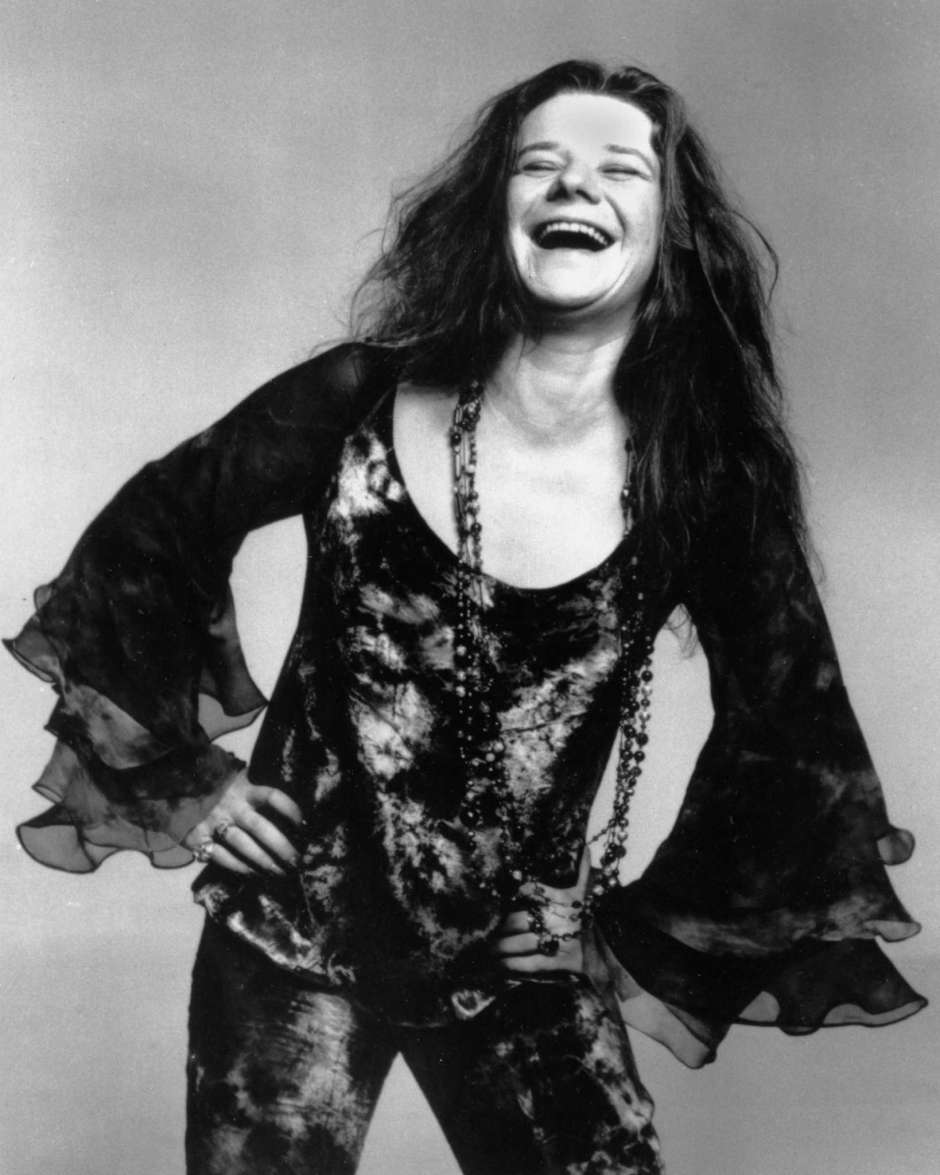
“‘Truly I tell you,’ he continued, ‘no prophet is accepted in his hometown.’” ~ Luke 4:24
The anguish. The wildness. The raw truth.
Janis Joplin not only commanded our attention but also allowed us to tap into our own heartache, through her own yearning voice.
Most of us have seen and heard her in the pop culture landscape. She is a staple figure of the “27 Club,” amongst those musicians, like Jim Morrison, Kurt Cobain, Amy Winehouse, and Jimi Hendrix, who all died at the young age of 27. They succumbed much too soon due to personal struggles with drugs, alcohol, depression, and mental illness. She is on that roster.
And her music: a white girl screeching the blues, yanking at the agony of love, unhealthy relationships, and despair-filled longing…you know, the human experience.
I love Janis. Despite my vocal shortcomings, I have belted out her stuff, a coping strategy to deal with exorcising the demons of this thing called life (hoping not to elicit howls from dogs and wolves in neighboring states).
For me, Janis is a necessity in tapping into and releasing pain. I identify with her, and for good reason. At first glance, we don’t have much in common, except maybe our shared middle name: Lyn. I thought that was the end of our similarities until I learned more about her…
Here are seven ways Janis Joplin inspires us to use our pain to become more, not less:
1. Starting Small.
Clichés are clichés for a reason. We are familiar with the common trope. A famous person starts out with humble beginnings. Poverty, abuse, a lack of love, and neglect are all a part of that story. Janis was born and raised in Port Arthur, Texas. And, not surprisingly, she did not fit in. Her community did not appreciate her appearance, popularity, and talent as she grew into a teenager. She did not look or express herself, “like everyone else.”
2. Not Fitting In.
Maybe part of why we adore celebrities, and rock stars in particular is because we see our inner misfit in them. They’re the loner, outcast archetype we often encounter in stories, both fact and fiction, brought to life.
For a lot of us, a part of the reason for our lack of belonging lies in the abusive systems we may find ourselves in, including our family of origin, schools, and houses of worship. Even more so if we are dwelling in a small, rural town, as I did?
Regardless of our circumstances, things like physical appearance, self-expression, sexuality, and financial status are just a few “reasons” that seem to make us targets of rejection. There seems to be an “us versus other” mentality, which asserts that anyone who appears to be different from the rest of the herd is to be ostracized.
And, let’s face it, if you are reading these words, you probably see yourself in the “other” category. Just like Janis.
3. Being “Too Much.”
Hello, black sheep and scapegoats, let’s all bleat together!
As a youth, Janis Joplin was ostracized and bullied. Because of, and despite of this, she explored her musical abilities and interests.
She went to blues clubs just across the state line. After graduating high school, she attended art school in Austin, Texas, and began performing her music in small clubs. Eventually, Janis moved to San Francisco during the 1960s Haight Asbury hippie movement. Janis flourished with that move.
This was a form of rebellion on her part, while simultaneously tapping into her voice. Janis Joplin was not viewed as a beautiful girl, a Southern belle, or a debutante. She did not “fit.” She was, perhaps, too loud, too aggressive, too sexual, too weird. She wasn’t traditional, conservative, or quiet. She was a screaming banshee. She challenged authority.
In time, the world would celebrate that. But not in this time and place. Each step of the way, she was met with criticism, judgment, and scorn. She may have projected a scrappy “tough girl” attitude, but it hurt her in a way that it hurts any of us when we are told we don’t measure up.
4. Finding Solace through Art.
If, day after day, the message we receive is “you don’t fit; you are wrong,” we are being persecuted. And it’s now gone global, with cyberbullying and stalking ratcheting a threat level beyond name-calling.
So, within that hostile environment, we, like Janis, are presented with a choice to fight back, to rebel, or not. Most of us, on some level, choose to fight back and rebel. It can be with belligerence and fistfights. It can also be with our deliberate decision to create and express. Enter, art.
Like Janis Joplin, many of us have found solace, identity, purpose, and meaning via this avenue. We create, therefore, we are. We can resemble Janis Joplin, even if we cannot carry a tune in a bucket. We can express ourselves, and we should not feel stifled for doing so.
5. Coping with Rejection.
Blame it on the Southern mentality, the Bible Belt, a lack of diversity in her community, whatever the reasons were, Janis was not accepted in her hometown. Unfortunately, attending art school in Austin, Texas would repeat that experience for her.
According to one documentary on the rock icon, each year the fraternities at the art school would sponsor a festival on campus. One of the activities was the “Ugly Man” award. People could nominate anyone who they believed should get that distinction.
Someone nominated Janis…and she won. This devastated her; she cried upon hearing the news.
Getting bullied and persecuted in our hometowns does not innoculate us from the pain of a repeat experience later on, in different settings. The happily-ever-after “Ugly Duckling” transformation is not always so easy.
Often, we can take our rejected experiences and even our internalized rejected states of being with us, wherever we go. It would be great if we could get some free passes on pain while we’re growing, discovering, and becoming who we are, but Janis is proof that even the icons amongst us don’t get that immunity. Life happens to us all.
We are not to blame for being bullied, but we are responsible for how we respond to it. I am inclined to believe the evidence of greatness resides in the presence of persecution, not in its absence.
6. Searching for Love.
Like many of us, Janis Joplin was seeking love. And, like many of us, as a reaction to rejection, she sought the approval and comfort she craved in the wrong places.
One of her close personal friends made this heartbreaking statement about her in a documentary I watched: “She would be with second-rate people if they would love her.”
Ouch.
Janis was not lucky in love, as they say. She was involved, reportedly, with both men and women, including Country Joe McDonald, Kris Kristofferson, and Jae Whitaker. Supposedly, she was even engaged, at the time of her death in 1970, to Seth Morgan.
Listen to “Ball and Chain,” “Piece of My Heart,” and “Me and Bobby McGee.” You can just hear the struggle.
She also continued to chase that acceptance she never got from her family and her hometown.
In a 1970 appearance on The Dick Cavett Show, Janis enthusiastically spoke of her plans to attend her upcoming 10th high school reunion. Cavett asked her if she had been popular in school. She responded that her peers “laughed me out of class, out of town and out of the state.”
Naturally, the misfit in her relished this reunion as an opportunity to come back the triumphant heroine and probably strut her stuff and rub her persecutors’ noses in it. This was her revenge/justice moment.
Dick Cavett asks, “Do you think you’ll have a lot to say to your classmates?”
Janis cackles, “I’m gonna laugh a lot, man.”
Unfortunately, that apparently did not happen. Those close to her reported that, while Joplin did return home for that milestone event, again, she was treated as an outsider. The reality did not match her revenge fantasy. She was further rejected, by both her community and by her own family members who were upset at her for speaking ill of her hometown.
When we have been rejected on a macro or a micro level, we tend to make it our mission to obtain love: to prove them all wrong, to get revenge, and simply, to be loved because that is the gaping, unmet need screaming to be realized. Human beings need to love and be loved. When that does not happen, we try to self-soothe, cope, and seek, if not love directly, then, at least, some love substitute.
And here’s where many of us can turn to alcohol, drugs, food, spending, sex, as well as to a full range of desperate and toxic relationships and behaviors. We want to meet this need for love any way we can. Rejection created the hole; we just want it filled. This is the pain that’s really at the root of our addictions.
7. Leaving a Legacy.
Despite, or maybe because of her struggles, Janis Joplin has left a legacy. Her music endures to this day. Artists like Melissa Ethridge, Stevie Nicks, Pink, and Florence Welch have all been influenced and inspired by the singer. And you can see it in their performances: tough, strong, rebellious, yet vulnerable women who have been affected by love and rejection and have powerful things to say.
I don’t know to what extent Janis sought and desired fame. I suspect she, like most of us out there, just wanted to be loved, valued, seen, and heard for the individual she was.
Janis was a prophet of sorts—she signaled what was yet to come in music and in feminism.
But did she know she was doing all of that at the time? Probably not.
So, let’s turn that around and ask ourselves: Where does my genius lie? What’s my own, unique star quality? What will my legacy look like?
Before you disqualify yourself from stardom, remember that this is not about fame, achievement, money, or status. Imagine yourself as a star already. Right now. As is. Can you do that?
If you’ve been rejected in your family, your hometown, your country, or your religion, just to name a few outlets of acceptance-seeking, you are part of an elite club. We are the fighters, the survivors, the artists, the changemakers. We are the ones who move the needle, however so slightly or seemingly insignificantly. The change, no matter how small, begins with us.
May Janis’s example encourage you, right now, to accept your value and worth. Not to emanate her, but connect with and discover your own spin on that spirit of freedom and truth.
I suspect that in your own unique, flawed, beautiful, rejected, fragile, strong, hurt, individualistic way, you are already there. You are greater than anyone else has imagined.
Go be your own prophet.
 Share on bsky
Share on bsky





Read 9 comments and reply